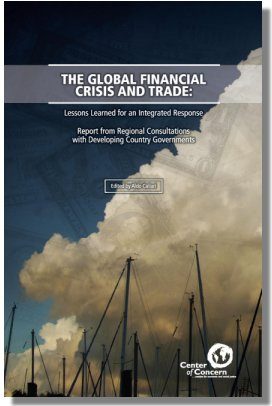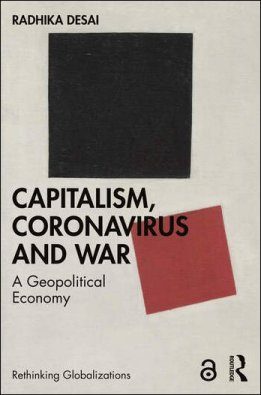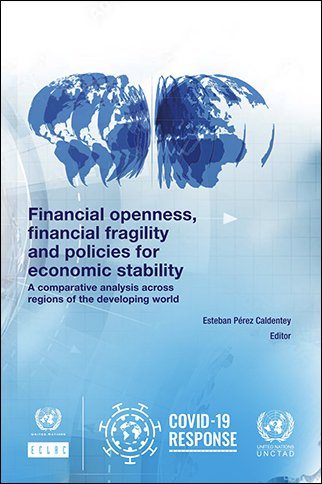Publisher: Third World Network Year: 2023 No. of pages: 42 Download now About the Book…
The Global Financial Crisis and Trade: Lessons Learned for an Integrated Response Edited by Aldo Caliari

Publisher: The Center of Concern
About the Book
The Center of Concern has published a new book: “The Global Financial Crisis and Trade Lessons Learned for an Integrated Response.” The book reports on a series of regional consultation workshops with developing country governments that it held in 2009-2010 on the theme that gives title to the volume.
The consultations covered the Latin America/Caribbean, Africa, and Asia-Pacific regions. They brought together official representatives from more than fifty five countries. More than thirty of these representatives were either Ministers or officials from Ministries of Finance and /or Trade in their respective capitals. The consultations also involved representatives from more than eight regional and five global intergovernmental organizations. Four intergovernmental organizations of regional scope (Latin American and Caribbean Economic System, the UN Economic and Social Commission for Asia and the Pacific and the Commonwealth Secretariat with its Foundation) and one with global scope (UNCTAD) contributed in-kind, financial and knowledge resources that were key to make the consultations successful.
Each of the meetings produced an Outcome Document that identifies areas where there was agreement and willingness to advance in making trade and finance intersection more visible in specialized policy-making. This book gathers some selected papers delivered at those consultations, as well as their Outcome Documents.
The intuition guiding the design of the consultations was one that followed on the Center of Concern’s years of experience canvassing the linkages between trade and finance and development dynamics in developing countries. Since the eruption of the global financial crisis in 2007-2008 most analyses, especially those originated in developed countries, tended to emphasize how much was “financial” about it.
This approach missed the significant role that trade played in generating the financial consequences for developing countries. Thus, the Regional Consultations had as their objective providing the platform for questions such as: What was the trade structure in developing countries and how did trade-related income impact the resilience of their financial systems? How much of an impact did their trade level have on their vulnerability to reserve currency fluctuations? And so on and so forth.
Unsurprisingly, the consultations unveiled a wide array of issues that come to sight in analyzing the relationship between the financial crisis and trade as it manifested itself in each region. In spite of this, as one reads them it is also possible to see how the broad contours of an agenda for an integrated response to the financial crisis that is relevant to all regions begin to take shape in the form of some discernible key messages.
The messages featured by this book were developed at a time when it was not clear that a Great Depression could be avoided. World trade has, indeed, substantially recovered after the collapse experienced during the crisis and, for a while, some economic indicators saw improvements that were hard to imagine in the late months of 2008.
Yet, as this book is published, a renewed crisis mood is vividly felt in the global economy. The US political stalemate on the public debt ceiling and continued obstacles to find a convincing solution to sovereign debt problems in Eurozone countries threaten the fragile recovery. To the uncertainties looming over the world economy, one should add the less favorable fiscal and monetary positions in which all countries would enter a new episode of economic distress.
Against this backdrop, an agenda that seeks to consciously revisit trade patterns from the perspective of their contribution to strengthening financial systems and financial resilience seems, more than ever, right on target for developing countries.
For more information, the table of contents, as well as information on how to order a copy, visit
To download a free copy of the introduction “The Global Financial Crisis and Trade: An Introduction” visit



